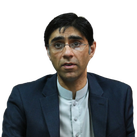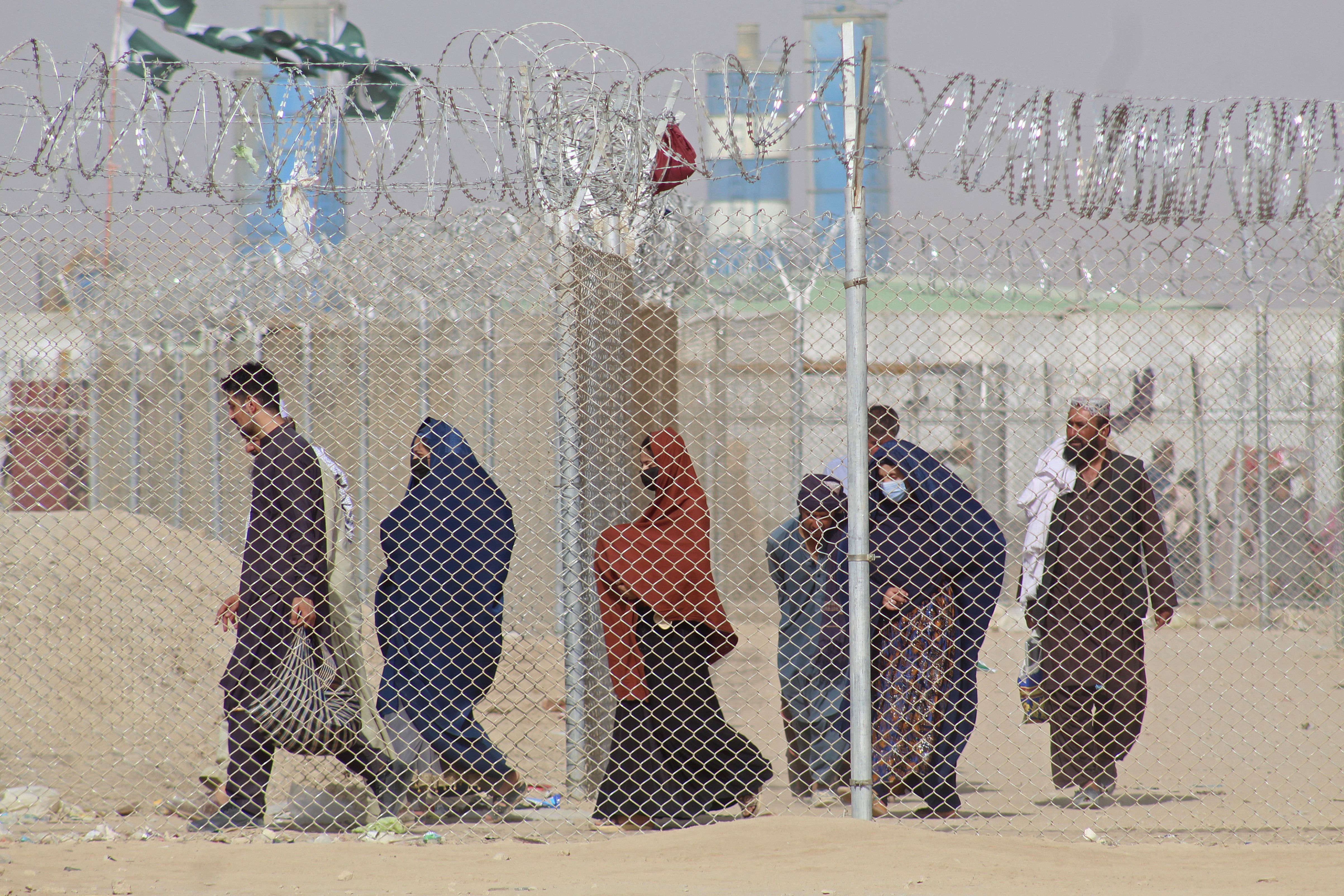The west cannot abandon Afghanistan – politically or economically
I recognise that engagement with the Taliban may be a politically difficult choice for some countries, but we are at a critical point


Your support helps us to tell the story
From reproductive rights to climate change to Big Tech, The Independent is on the ground when the story is developing. Whether it's investigating the financials of Elon Musk's pro-Trump PAC or producing our latest documentary, 'The A Word', which shines a light on the American women fighting for reproductive rights, we know how important it is to parse out the facts from the messaging.
At such a critical moment in US history, we need reporters on the ground. Your donation allows us to keep sending journalists to speak to both sides of the story.
The Independent is trusted by Americans across the entire political spectrum. And unlike many other quality news outlets, we choose not to lock Americans out of our reporting and analysis with paywalls. We believe quality journalism should be available to everyone, paid for by those who can afford it.
Your support makes all the difference.US president Joe Biden’s decision to withdraw troops and end the international military presence in Afghanistan marks the logical conclusion of a war that never had a military solution. However, questions about the future of Afghanistan remain.
Will the military exodus be matched by reinvigorated diplomatic and economic engagement? Or will the world repeat past mistakes by abandoning Afghanistan and the region, with no regard for the humanitarian and security crises that would inevitably follow? Worryingly, the signals thus far have been mixed.
For years, Pakistan supported the idea of a negotiated political settlement as the only way to end the war in Afghanistan responsibly. We knew we were going against the grain of the predominant thinking in the west, where notions of victory on the battlefield were never truly discarded. But as the country with the deepest links to Afghanistan, we understood the local context, and the fallacy of attempting military victory in a country that has never tolerated foreign imposition for too long.
Our advice was ignored, and rather than the sacrifices Pakistan made during the war in Afghanistan being acknowledged, we were accused of playing a “double game”. The reality is that, since 2001, Pakistan has been the principal victim of the war in Afghanistan. We have suffered over 80,000 casualties and more than $150bn in economic losses, with more than 3.5 million of our own people internally displaced at the height of the terrorist onslaught inside Pakistan.
This backlash was a direct consequence of our partnership with the west in Afghanistan, as anti-Pakistan terrorist outfits, often based in Afghanistan, justified their attacks on innocent Pakistanis by presenting Pakistan as an enabler of the US “occupation” of Afghanistan. No other country has had to bear such pain – and for a war in a neighbouring country, which was not of our making.
The final days of the Ashraf Ghani presidency validated our view by laying bare just how disconnected both the Afghan government and international assessments were from reality on the ground. The chaos of the military exit from Afghanistan was avoidable. Unfortunately, Ghani, and regional spoilers like India, created false narratives aimed at masking the reality that international efforts in Afghanistan lacked legitimacy in the eyes of the Afghans. Kabul’s misgovernance and massive corruption left it devoid of all credibility and, unsurprisingly, led to the security forces refusing to fight against the Taliban – something that was accepted by many in Afghanistan as a political reality.
The all too convenient popular narrative used Pakistan as a scapegoat, and this was the pretext President Ghani used to stall peace talks in Doha. By the end, virtually every Afghan political leader of note had confided in us that the Ghani administration was not serious about finding a negotiated settlement with the Taliban. The world left it too late to realise and correct this folly. The rest is history.
Today, Afghanistan and the world are at an inflection point. Pakistan’s view may once again be against the grain of political expediency. But it is as sincere as it was in the past. For the sake of the average Afghan, and in the purely selfish national interest of western countries, it must be given fairer treatment now.
As unexpected as the pace of the transition in Afghanistan has been, it has spared Afghans a protracted conflict and more meaningless bloodshed. An immediate refugee crisis has consequently been averted. The Taliban have also signalled their intention to engage with the world, even asking western countries not to close down their embassies. This opens up space for the international community to engage constructively with Afghanistan.
Pakistan’s expectations of the new government are identical to those of the west. We have repeatedly called for a government that caters to and protects the rights of all Afghans while ensuring that Afghanistan’s territory is not used for terrorism against any country. This is a goal we share in full with the international community.
The prudent way to ensure this is for the international community to incentivise the Taliban, through engagement and assistance, in return for commitments on a moderate style of government. While it is ultimately up to the Taliban to decide how to govern, the world must not underestimate the leverage it has to shape their behaviour given the new regime’s need for international support and legitimacy. The international community should coordinate its efforts, with major powers and Afghanistan’s immediate neighbours developing a consensus on constructive engagement as the way forward.
I recognise that this may be a politically difficult choice for some countries. But the alternative of walking away from Afghanistan would be tantamount to giving up on the millions of Afghans that remain inside the country. With no money, and limited internal capacity, Afghanistan risks collapse. This would inevitably lead to mass migration and a security vacuum that would allow Isis, al-Qaeda, and other international terrorist groups to thrive once again. Neither of these groups remained confined to Afghanistan or the region last time around. It would be foolish to think that the entire world would not be affected again.
Abandonment of Afghanistan has consequences that the world, and most of all Pakistan, has lived through for the past four decades. Afghans have been ravaged by war, and Pakistan still houses approximately 4 million Afghan refugees.
It is the international community’s collective responsibility to avert a humanitarian crisis in Afghanistan, and to ensure that the threat to all of us from terrorism is ended once and for all. This requires constructive engagement with the new political reality in Afghanistan.
Dr Moeed Yusuf is national security adviser for Pakistan
Join our commenting forum
Join thought-provoking conversations, follow other Independent readers and see their replies
Comments